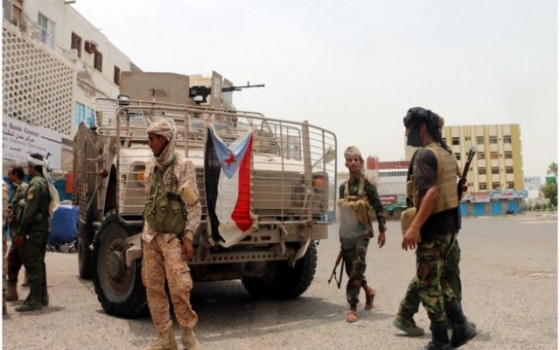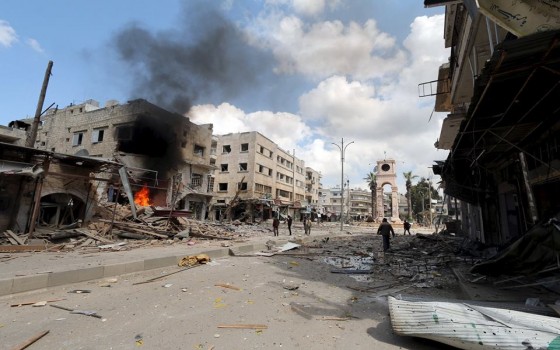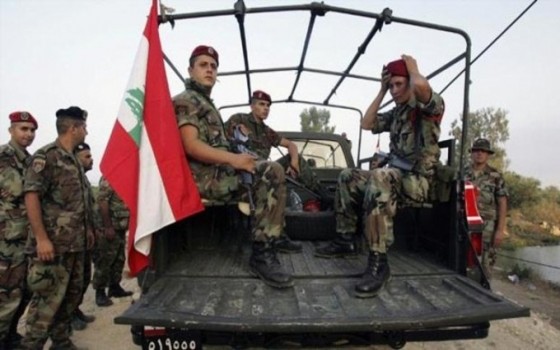
Yemen: UN warns of 'unprecedented' catastrophe due to deteriorating security and humanitarian conditions

- Europe and Arabs
- Friday , 13 September 2024 10:56 AM GMT
New York: Europe and the Arabs
Two UN officials warned of the deterioration of the security and humanitarian situation in Yemen amid the challenges facing the country due to conflict and natural disasters, and called on the international community to increase financial support in order to avoid a humanitarian catastrophe. According to the UN daily news bulletin
This came during a session held by the UN Security Council yesterday, Thursday, to discuss developments in the situation in Yemen.
Speaking via video, the UN Special Envoy for Yemen, Hans Grundberg, renewed his deep concern about the ongoing arbitrary arrests by the Ansar Allah group (Houthis), of UN employees and members of civil society, calling for their immediate release.
He warned that these arrests severely affect the civil space and humanitarian efforts in Yemen.
Hans Grundberg pointed to the deterioration of the situation in Yemen, which was exacerbated by the ongoing Gaza war, which led to increased regional instability and "triggered attacks on ships in the Red Sea" by Ansar Allah, including targeting a Greek-flagged oil tanker, which led to its abandonment.
Grundberg said this raises concerns about a catastrophic oil spill and environmental disaster on an unprecedented scale. He said an oil spill of this magnitude would have dire consequences for Yemen and the wider region.
Grundberg expressed his gratitude to Member States, particularly those in the region, who he said were racing against time to carry out an urgently needed rescue operation, and strongly urged the Ansar Allah group to end their dangerous targeting of civilian vessels in the Red Sea and beyond.
Casualties
The military situation in Yemen remains volatile, according to the UN envoy, with clashes in key areas resulting in significant casualties. Despite some economic de-escalation agreements, the overall economic situation for Yemenis continues to deteriorate, exacerbated by natural disasters such as flooding in Hodeidah and Hajjah.
Grundberg reiterated his commitment to engaging with all parties to find immediate and long-term solutions, including economic cooperation and de-escalation of the conflict. He highlighted recent constructive discussions with key stakeholders in multiple locations, stressing the importance of depoliticizing Yemen’s economy. UN envoy Hans Grundberg said that his office will focus in the coming period on promoting the comprehensive peace process, engaging Yemeni society, and working towards a nationwide ceasefire and political process.
Grundberg stressed the importance of the Security Council’s support for his efforts, particularly in seeking the release of detained UN staff, as well as in refuting false accusations against the UN, such as those recently made against UNICEF, UNESCO and other humanitarian partners. “The UN has strongly refuted these allegations,” Grundberg concluded his briefing by saying: “The UN, through all its agencies, will continue to work tirelessly for the well-being of the Yemeni people.”
In her address to the Security Council, Joyce Msuya, Acting Under-Secretary-General for Humanitarian Affairs, highlighted the deteriorating humanitarian situation in Yemen. She also expressed concern about the continued arbitrary detention of UN staff and humanitarian workers by the de facto Houthi authority, and called for their immediate release. Msuya condemned the “false accusations” against aid workers, stressing that such claims hamper relief efforts.
Yemen is facing critical levels of food insecurity, with 62 per cent of households reporting insufficient food, and many areas suffering from severe malnutrition. Msuya warned that more than 600,000 children in areas under the control of the Yemeni government could suffer from acute malnutrition by the end of 2024.
In addition, recent floods, landslides and a cholera epidemic have displaced more than 270,000 people and affected more than half a million. Across the country, more than 180,000 suspected cases of cholera and acute watery diarrhoea have been recorded since the outbreak began, according to Ms. Msuya.
Msuya stressed that the humanitarian response is severely underfunded, with only 28 per cent of the coordinated appeal funded, and essential programmes such as food security and shelter severely under-resourced. In response to the seriousness of this funding shortfall, Msuya said she had recently approved the release of $20 million from the UN Central Emergency Response Fund for Yemen. However, she stressed that this allocation is insufficient to support the vital programmes on which the Yemeni people depend. Despite the challenges, the UN and its partners continue to provide emergency assistance, including cash, food and shelter, but Msuya urged the international community to increase financial support. She stressed the need to comply with international humanitarian law and renewed the call for peace in Yemen as the only long-term solution. The Council also heard a briefing from Linda Al-Abahi, representative of the Peace Initiative Foundation and the Women's Solidarity Network, noting that the work of the two institutions focuses on supporting comprehensive peace building in Yemen and advocating for women's rights. Her speech focused on the deterioration of Yemeni women's rights, "as women and girls constitute 49% of the 18.2 million people in need of humanitarian assistance and face food insecurity, water scarcity, disease, and inability to access basic life-saving services such as health care and education, in addition to poverty, deprivation of economic opportunities, exclusion, and systematic repression of their rights," she said. She added that women face restrictions by all warring parties in Yemen regarding their human rights, especially their freedom of movement. As for female human rights defenders and activists, they are subjected to public defamation, violence, and online threats, according to Ms. Al-Abahi, who pointed out that all parties to the conflict have committed violations against women and girls, such as enforced disappearances and arbitrary arrests.
A time bomb
Speaking at a Security Council session, Yemen's Permanent Representative to the United Nations, Ambassador Abdullah Al-Saadi, accused the Houthis of targeting the Safer oil facility in Marib Governorate with three drones "in an attempt to destroy it."
In this context, the Yemeni delegate warned of "the dangers of an imminent disaster" due to "the Houthi militias' continued obstruction of international efforts to rescue the oil tanker (Sunion), which is carrying one million barrels of crude oil after it was targeted by the Houthis on August 21."
He warned of a "large-scale environmental disaster" that he said would affect Yemen and neighboring countries if this ship explodes.












No Comments Found